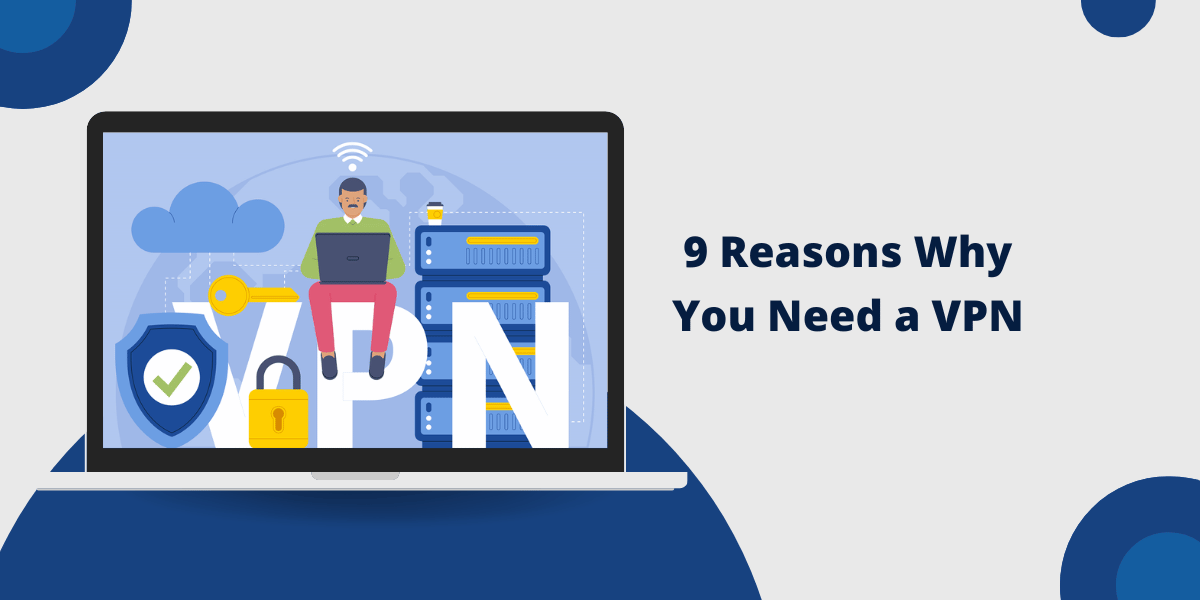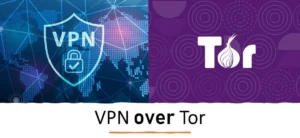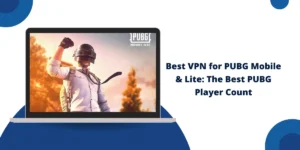Why You Should Be Using a VPN
From accessing geo-restricted content to avoiding government surveillance, a VPN can offer many benefits. Learn why you need a VPN today.
As technology advances and the internet expands, online privacy and security has become utterly imperative. Virtual Private Networks or VPNs have emerged as a useful solution to safeguard digital activities, shield information, and maintain anonymity. VPNs encrypt internet traffic, hide IP addresses, mask location and identity, allow access to restricted content, foil cyber threats, protect financial data, Keywords facilitate secure communications, enable censorship circumvention, disguise torrenting, hide personal details, and offer peace of mind in today’s world of constant tracking, surveillance, and data breaches. For anyone concerned with privacy or watching their steps online, VPNs provide essential benefits across 11 compelling reasons in today’s digital landscape.
Key Takeaways
- VPNs encrypt your internet traffic and hide your IP address to prevent hacking, spying, and tracking by cybercriminals.
- VPNs allow access to restricted content and websites that may be blocked in your country due to censorship.
- Public Wi-Fi hotspots can expose you to various security risks that can be avoided by using a VPN.
- VPNs provide anonymity by masking your digital footprint and location on the internet.
- VPNs are essential for protecting your privacy and sensitive information on public networks.
- VPNs can help you bypass geographic restrictions to access entertainment content.
- Businesses use VPNs to enable remote workers to access company servers and data securely.
- VPNs prevent ISPs from monitoring your online activities and selling your browsing data.
- VPNs boost internet performance and speed by encrypting data and scrambling traffic.
Why You Need a VPN in Today’s Digital Security Era
As the internet continues to evolve and expand, the need for online privacy and security has become increasingly important. Virtual Private Networks (VPNs) have emerged as a popular tool to help protect your online activities and ensure your data remains private. In this article, we will explore 11 reasons why you should consider using a VPN in today’s digital landscape.
- Protect Your Privacy
- Secure Public Wi-Fi Connections
- Bypass Geographical Restrictions
- Circumvent Internet Censorship
- Prevent Bandwidth Throttling
- Improve Online Gaming Experience
- Safeguard Your Financial Transactions
- Access Your Home Network Remotely
- Maintain Anonymity for Sensitive Research
1. Protect Your Privacy
VPNs shield your privacy by obfuscating your IP address through encryption and disguising your internet traffic to prevent monitoring by third parties like ISPs, hackers, and governments. By scrambling your communications and cloaking them in ciphered code, VPNs make it arduous for anyone to see what websites you visit, search for, or share information on, track your keystrokes or clicks, or gather details about you. Your VPN endpoint acts as an intermediary, hiding your true IP and shuffling your traffic to foil backtracking to your devices or location.
No one can perceive your browsing activity or digital footsteps behind the VPN veil. Online invisibility and anonymity are within reach, allowing you to navigate freely without fear of judgment or reprisal. Protecting privacy is the foremost benefit of using a virtual private network.
2. Secure Public Wi-Fi Connections
Public Wi-Fi networks introduce inherent vulnerabilities that compromise users’ private information by exposing sensitive data and communications to hacking threats due to their insecure design. To connect to public Wi-Fi securely and confidently without fear of privacy leaks or unauthorized access, utilize a VPN which fully encrypts your connection end-to-end and functions as an impenetrable shield, masking your online activities within its encrypted tunnel.
By protecting your connection with a VPN, you eliminate the risks of public Wi-Fi networks and ensure that all details and communications remain encrypted and private at all times. Although public Wi-Fi poses security risks by nature, a VPN acts as an unbreakable cipher, encrypting all network traffic and allowing you to use any hotspot knowing your information will stay safe from exposure or access.
With a VPN secured over your connection, you can confidently use public Wi-Fi and go online knowing your sensitive details are encrypted for complete protection.
3. Bypass Geographical Restrictions
Many websites and streaming services place geographical restrictions limiting access to content based on a user’s location. To bypass such restrictions and access a wider range of content, utilize a VPN which allows you to connect through servers in different countries. By masking your true IP address and location, a VPN fools’ websites into thinking you are connecting from another country without blocks or geographical restrictions. This provides access to content that may otherwise be unavailable in your physical location.
With a VPN, you can stream region-locked media, access country-specific services, and bypass censorship firewalls that restrict information based on geography. By clocking your location with an encrypted VPN connection, you gain the freedom to connect without boundaries or limited access.
4. Circumvent Internet Censorship
Certain governments censor internet access within their borders by blocking specific websites or online services. A virtual private network or VPN can undermine these censorship efforts by masking your online activity and routing your internet traffic through another country.
A VPN creates an encrypted connection over a less secure network, like the public internet, disguising your browsing data and location. It routes your traffic through a VPN server in a region where the content you want to access is permitted. This disguises the origin of your browsing and allows you to view information that would otherwise be prohibited or unreachable due to censorship.
Using a VPN circumvents censorship controls by hiding your online identity and location. It provides a way to bypass restrictions on certain websites and services, expanding access to information that may be censored or blocked within your region. A VPN is a technique for avoiding internet censorship and gaining access to a wider range of permitted content.
5. Prevent Bandwidth Throttling
Internet service providers frequently throttle down your internet speed when you consume a large amount of data or perform online tasks requiring high bandwidth, such as streaming videos or playing online games.
A virtual private network hides how you utilize the internet from your internet service provider. This precludes them from slowing your connection based on how you use the web.
By routing your internet traffic through an encrypted VPN tunnel, your internet service provider cannot discern which websites you access or what services you employ. As a result, they cannot curb your bandwidth or punish you for streaming high-definition videos, downloading sizable files, or gaming online with others.
A VPN ensures fast, unrestricted connectivity so you can enjoy an open internet experience devoid of constraints or hindrance from your internet service provider.
6. Improve Online Gaming Experience
A VPN can enhance your online gaming by decreasing latency and providing access to gaming servers with geographical restrictions. Additionally, using a VPN safeguards your gaming accounts from DDoS attacks, which are growing increasingly prevalent in the gaming community.
A VPN improves gaming performance by lowering latency and unlocking geo-blocked gameplay. It also shields gamers’ accounts from malicious DDoS floods, securing them from disruptions common in the online gaming world.
7. Safeguard Your Financial Transactions
Online banking and shopping expose your sensitive financial details without proper security. A VPN encrypts your financial transactions, shielding them from hacking attempts that try to intercept and compromise your information. A VPN safeguards the sensitive data exchanged during online financial activities. It encrypts your account access, purchases, and other transactions, blocking hackers from seeing or stealing your account details and login credentials.
With a VPN, your money and accounts remain private while banking and shopping online. No unauthorized parties can view or access your financial information, preventing account takeovers or identity theft. A VPN provides an extra layer of protection for the vulnerable connectivity involved in online financial dealings.
8. Access Your Home Network Remotely
VPNs enable you to connect to your home network securely when away. By setting up a VPN on your home router, you can access files, devices, and shared data from anywhere.
With a VPN configured, you can access your home network globally while protecting your privacy and security. Your online activities and communications are encrypted, hiding your login details. A VPN tunnel obscures your browsing and transports information through an encrypted link, allowing remote access to your network resources as if directly connected. No unauthorized parties can view your network access or compromise sensitive information.
The VPN masks your internet traffic and disguises it as another network’s traffic, safeguarding the data from prying eyes. Your true IP address is concealed, replacing it with the IP address of the VPN server. This encryption and obscurity of transmission ensures that no eavesdropper can snoop on your connection or steal private network access credentials. Your home network remains private while roaming remotely thanks to the secure tunnel created by the VPN.
9. Maintain Anonymity for Sensitive Research
A VPN masks your internet usage and hides your online identity. It protects your privacy by disguising your IP address, the unique number that identifies your device’s connection to the web.
With a VPN, you can conduct sensitive research or access controversial content anonymously. No one can see what websites you visit or track your browsing activity. Your data and location are obscured, allowing you to explore freely without compromising your anonymity. A VPN provides an extra layer of encryption and concealment for your digital life. You can feel secure that your online privacy is preserved while unlocking more of the internet.
Features to Look for in a Good VPN Service
Choosing the right VPN service is vital to ensure your security and privacy needs are met. Here are some key features of a trustworthy VPN provider:
- No-logs policy: Does not record or store user activity logs that can identify you.
- Kill switch: Prevents data leaks if the VPN connection drops unexpectedly.
- Strong encryption: Uses protocols like OpenVPN or WireGuard with AES 256-bit encryption.
- No bandwidth limits: Provides unlimited bandwidth with high-speed servers.
- Multi-platform clients: Offers native apps for all operating systems and devices.
- Obfuscated servers: Evades VPN blocking in countries like China and Russia.
- Reliable connections: Provides steady connections and minimal latency.
- 24/7 customer support: Has knowledgeable support staff to resolve any issues quickly.
- Money-back guarantee: Provides a lengthy risk-free refund period to test the service.
Final Thoughts
VPNs are essential for online privacy and security. They encrypt your internet traffic and mask your IP address to prevent hacking, surveillance, and censorship. VPNs allow access to restricted content and blocked sites. They secure public Wi-Fi connections, which are prone to attacks. VPNs provide anonymity by hiding your digital footprint. They also bypass geographic restrictions to unlock entertainment content unavailable in your region. Businesses rely on VPNs for remote staff to securely access company data and networks. VPNs stop ISPs from tracking you and even boost internet speeds. With online threats growing, a trustworthy VPN service is vital for protecting your sensitive information and data on the internet.
FAQs
Does a VPN protect against viruses?
VPNs do not protect against viruses or malware since they only encrypt internet traffic. You need to use antivirus software in addition to a VPN to prevent viruses from infecting your device and compromising sensitive data.
Can using a VPN be illegal?
Accessing region-restricted content and bypassing censorship using a VPN is not illegal in most countries. However, explicitly using VPNs to conduct illicit activities can be unlawful. Check your local laws before using a VPN service.
Is it safe to use free VPN services?
Free VPNs often have security flaws and privacy risks, so it’s better to avoid them if possible. They tend to have slower speeds and session limits and may log your traffic or inject ads to recover costs. Paid VPNs are more reliable and protect your privacy more stringently.
Can VPNs be hacked?
Like all software, VPNs can have vulnerabilities that hackers could exploit in rare cases. However, using a trustworthy VPN from a reputed provider with robust security practices minimizes any potential risks. VPN protocols like OpenVPN and WireGuard offer rock-solid encryption that is virtually impenetrable.
Do VPNs work on public Wi-Fi?
Yes, VPNs work over any internet connection, including public Wi-Fi hotspots. By routing your connection through an encrypted VPN tunnel, you can securely access the internet on public networks and prevent hacks like MITM attacks that may compromise your data.
Can a VPN protect me when torrenting?
Using a VPN when torrenting anonymizes your IP address to avoid detection by copyright enforcers. VPN encryption secures your traffic from ISP throttling. However, some paid VPNs explicitly ban torrenting due to legal reasons – check the terms before using one.
Are VPNs legal to use?
In most countries, using VPNs is fully legal as long as you aren’t engaging in any criminal activities. However, some repressive regimes restrict VPN usage due to censorship concerns. VPN legality also depends on the purpose for which it’s used.
Can the government see my VPN data?
Government agencies have sophisticated techniques to decrypt VPN traffic if they desire it. However, with key information like server IP addresses, decryption is easier. Reputable no-logs VPN providers won’t record identifiable user data that governments could access.
Do I need a VPN for everyday browsing?
Using reputed antivirus software is sufficient for general web surfing and activities like social media, shopping, etc. However, VPNs provide an additional strong privacy and security layer for everyday internet use if you wish to maximize your anonymity.
Can I be tracked if I use a VPN?
Top VPN services with robust no-logging policies do not record any user activity that can be tracked back to your identity. However, your internet service provider can still see you’re connected to a VPN server – just not what you’re accessing using it.
Does a VPN protect me on all my devices?
Most good VPN providers allow you to secure 5-10 devices simultaneously under one account. So, you can install the VPN app across all your gadgets, such as laptop, mobile, tablet, etc., using the same login details. This uniformly encrypts traffic on all devices.

 Verified A Professional Content Writer
Verified A Professional Content Writer
Riha Mervana is a professional content writer at SearchVPN.org, with extensive experience crafting engaging and informative content. She has established herself as an expert in the VPN industry, creating content that educates readers on the importance of online privacy and security.



